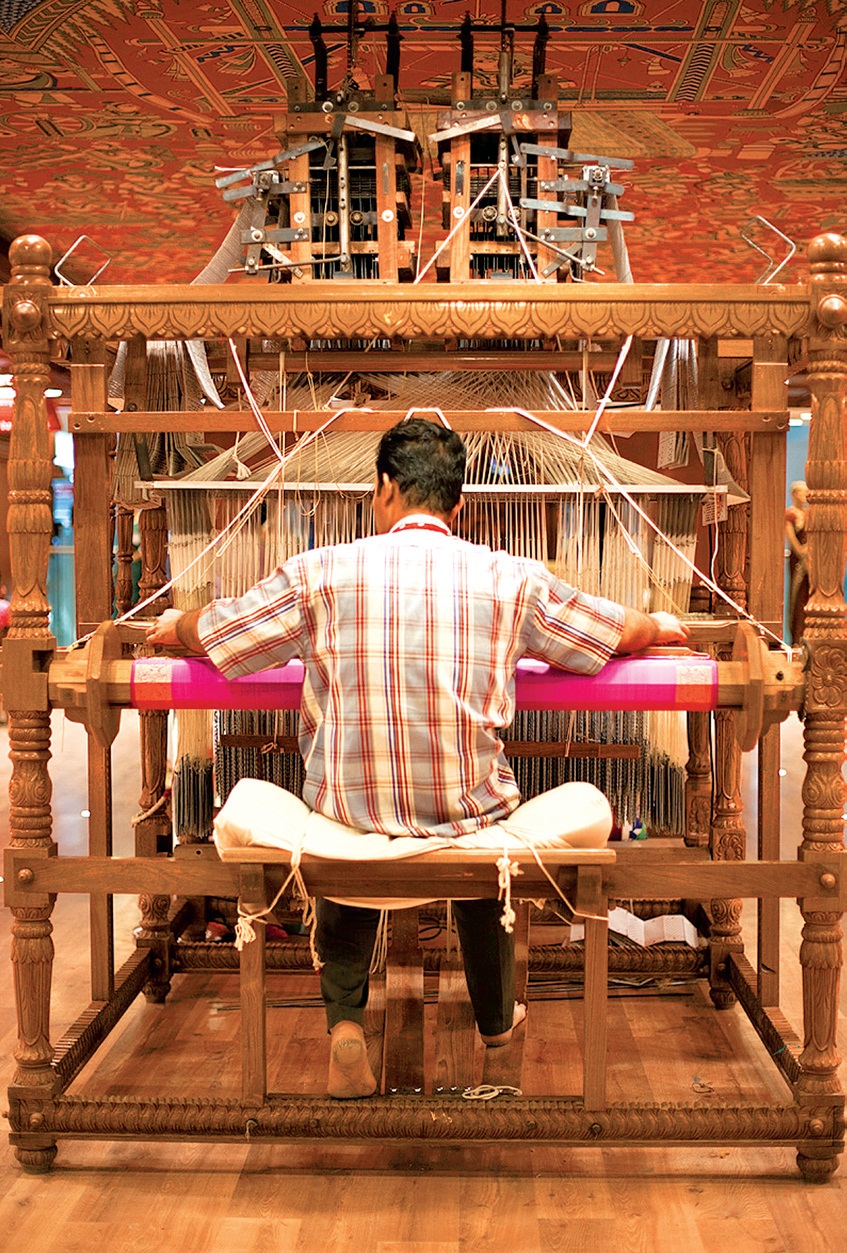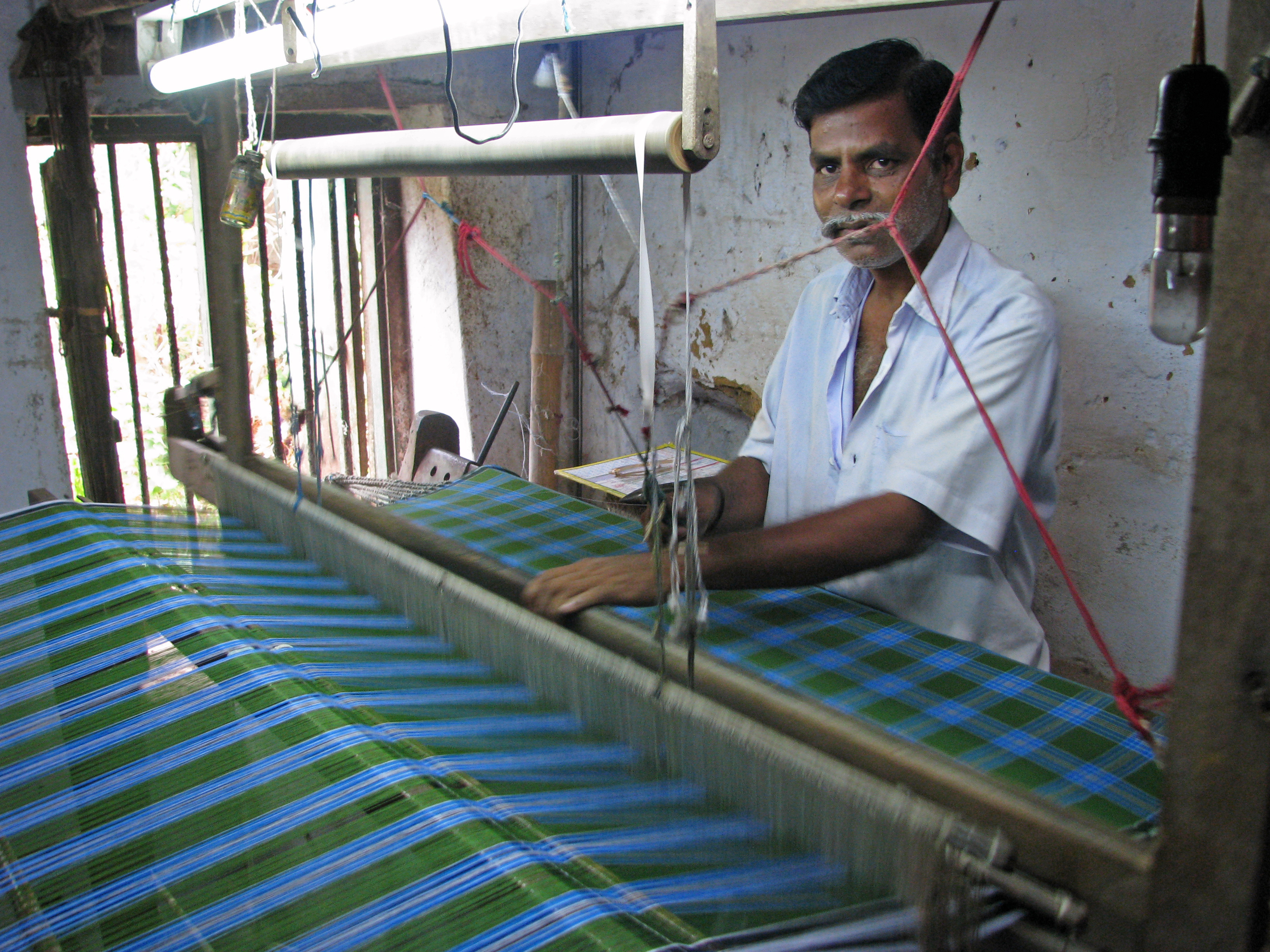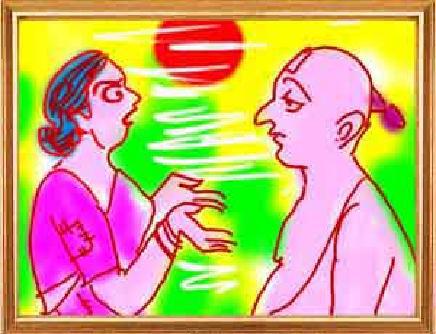9. SOMILAKA THE WEAVER AND WEALTH

Long, long ago, there lived a weaver in a town by the name of Somilaka. The cloth he wove was so fine and beautiful that even the king liked it. But somehow, he still remained a poor man, while other weavers were quite rich, even though they wove inferior cloth. This bitter fact made Somilaka sad. He left his native village and went to settle down in some other town to try his luck. In this town also, Somilaka couldn’t earn much money. He became frustrated and decided to commit suicide. He made a rope of grass, prepared a noose and tied the rope’s other end to the high branch of a tree. He put the noose round his neck. As he was about to jump on to the ground, he heard a voice from the heaven calling, “Hold it, don’t commit suicide. It is I, God. I’m pleased with your hard work. Ask any boon of me and I’ll grant it.”
8. SALANAN, THE WEAVER

In a certain town lived a weaver. His name was Salanan, and he spent his time making garments dyed in various patterns, fit for such people as princes. But for all his labours, he could not collect a bit of money beyond food and clothes.
Yet he saw other weavers, who made coarse fabrics, rolling in wealth, and he said to his wife: “Look at these fellows. They make coarse stuff, but they earn heaps of money. This city does not offer me a decent living. I am going to move.”
“Oh, my dear,” said his wife, “it is a mistake to say that money comes to those who travel.”
And whispers: “I am yours. So stay here and mind your business.”
7. OLD DOGS LEARN NEW TRICKS

A farmer intended to shoot a faithful dog, now too old to be of use. But the dog’s friend the wolf had a plan. Accordingly, he seized the master’s child; the dog pursued and with a pretended struggle rescued the child. The grateful farmer now promised to keep the old dog as long as he lived.
❖ Old Dogs Learn New Tricks.
6. MOTHER SHANDILI

As related by a holy man:
Once during the monsoon season, I requested a Brahmin to allow me to stay with him, so that I could fast and pray undisturbed. He agreed, and I went to his home. One day, I was listening attentively to the conversation the Brahmin was having with his wife.
‘Brahmini’, he said to her, ‘tomorrow is a special festival, and so it is a very favorable time for collecting alms. I shall go to one of the villages to beg. And you too should give something to a Brahmin’.
The Brahimini got excited when she heard him say this. ‘How can we afford to give something to a Brahmin when we are so poor ourselves? she exclaimed.’ And another thing, ever since I married you, I have had no luck whatsoever. I never had any good food to eat or any good clothes to wear and you’ve never bought me a single ornament.’
‘When the Brahmin heard this, his spirits were very dampened and he said, ‘Oh Brahmini, when you have only a mouthful, you should give half of it to someone in need.’
‘Well’ said the Brahmin’s wife,’ I have got a few sesame seeds. I’ll take the husks off them and make them into a tasty dish for some Brahmins.’
And so early next morning, when the Brahmin had left for the next village, his wife cleaned the sesame seeds in hot water, removed the husks and put them in the sun to dry. Then she got busy with her household work. Meanwhile a dog came along and cocked his leg up over the sesame seeds and went away. When the Brahmini saw what happened, she said ‘Fate has turned against me. What a trick to play! Well, I’ll take the seeds to some other house and exchange them for some unhusked seeds, anyone will agree to such an exchange.’
And so mother Shandili went off to exchange them. Now, she happened to come to the very house that I was visiting that morning to collect alms. She said to the lady of the house, ‘Would you like to change these husked sesame seeds for unhusked ones?’
The lady of the house was just about to make the exchange when her son stopped her, ‘Mother! There must some reason for mother Shandili to be trying to exchange these husked sesame seeds. Don’t agree to it!’
When mother Shandili saw that she had failed, she quietly left the house and returned home.
❖ When someone offers you something that is too good to be true, don’t be carried away by it – Think and analyse.
❖ Courtesy is the sign of good behaviour.

